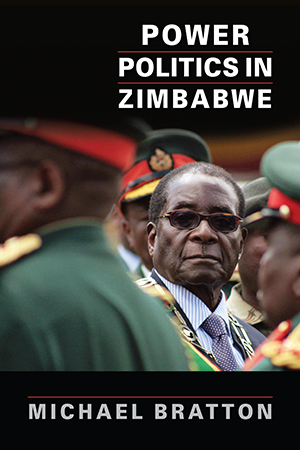
- 2014/281 pages
Power Politics in Zimbabwe
Hardcover: $75.00
ISBN: 978-1-62637-076-0
Paperback: $28.50
ISBN: 978-1-62637-388-4
Ebook: $28.50
ISBN: 978-1-62637-525-3
Choice Outstanding Academic Book!
Zimbabwe's July 2013 election brought the country's "inclusive" power-sharing interlude to an end and installed Mugabe and ZANU-PF for yet another—its seventh—term. Why? What explains the resilience of authoritarian rule in Zimbabwe?
Tracing the country's elusive search for political stability across the decades, Michael Bratton offers a careful analysis of the failed power-sharing experiment, an account of its institutional origins, and an explanation of its demise. In the process, he explores key challenges of political transition: constitution making, elections, security-sector reform, and transitional justice.
Zimbabwe's July 2013 election brought the country's "inclusive" power-sharing interlude to an end and installed Mugabe and ZANU-PF for yet another—its seventh—term. Why? What explains the resilience of authoritarian rule in Zimbabwe?
Tracing the country's elusive search for political stability across the decades, Michael Bratton offers a careful analysis of the failed power-sharing experiment, an account of its institutional origins, and an explanation of its demise. In the process, he explores key challenges of political transition: constitution making, elections, security-sector reform, and transitional justice.
No rights in southern Africa.







